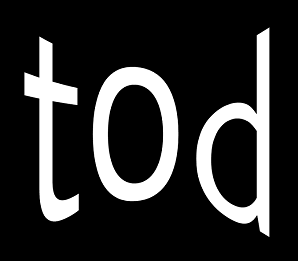I’ve followed Bitcoin cryptocurrency news for many years, and recently read about Facebook’s version they call Libra. Lately I’ve been hearing more about blockchain, the underlying technology that makes Bitcoin work, and how it’s being used for different applications.
But it wasn’t until blockchain was mentioned in the same breath as SEO (search engine optimization) that I really paid attention.
Click to Read Sections:
- 1 What Does Blockchain Have to Do With SEO?
- 2 What is Blockchain?
- 3 How Does Blockchain Work?
- 4 How Do You Use Blockchain for Venture Funding or Crowdfunding?
- 5 Why Do Companies Use Blockchain?
- 6 What Are Roadblocks to Adopting Blockchain?
- 7 When to Use Blockchain
- 8 What is the Value of the Blockchain Market?
- 9 Where Do You Buy Blockchain?
What Does Blockchain Have to Do With SEO?
Blockchain currently has little to do with SEO, but there are indirect and related impacts of blockchain on SEO and big potential for disrupting SEM (search engine marketing, AKA paid search).
What are the Direct Impacts of Blockchain on SEO?
Optimizing a web front-end with data from a blockchain should be like any other SEO job, because the fundamentals still apply. Optimizing a site “will present both technical issues and opportunities in which SEOs will have to work alongside developers to resolve compatibility issues with different content management systems and website platforms.”(6)
Indirectly, blockchain lets start-up companies launch better solutions, and those companies need SEO as part of their go-to-market plans. Some SEO firms are now specializing in blockchain solutions, such as BlockchainSEO who offers SEO for blockchain companies and law firms.
What is Blockchain?
It’s confusing because blockchain is so closely tied to Bitcoin. Bitcoin is a virtual currency where blockchain is software. Specifically, blockchain is a distributed ledger database used and made popular by Bitcoin cryptocurrency. Blocks of data save transactions (records of anything) in a chronological chain, then the blocks are sent to other computers hosting the same ledger. Secure access keeps it safe, chronological blocks keep records accurate, and distributing the ledger keeps it decentralized and trusted.
How Does Blockchain Work?
- Blockchain uses public key / private key for identification.
- Shares a distributed ledger across a large network, updating each copy of the ledger with every new block of data.
- Transactions are blocks of data written chronologically, and saved to every copy of the ledger across the network.
- Blocks cannot be copied or deleted; only added. And if they could, they’d need to be changed on every copy of the ledger on the network.
- Consensus to add to or change the blockchain comes from the distributed network, meaning no central authority can change transactions.
How Do You Use Blockchain for Venture Funding or Crowdfunding?
Blockchain combined with a cryptocurrency token is a new way for start-ups to raise capital, but without the expense and hassle of going through an initial public offering (IPO) to be listed on a stock exchange. Instead of a stocks or options, investors purchase tokens or virtual coins managed by a blockchain. This ICO, or initial coin offering, method of fundraising helped secure $6.2 billion in 2017.
A newer twist on using a cryptocurrency run on blockchain for fundraising is called a STO or Security Token Offering. The token represents ownership of a company’s specified security – either an asset or debt such as receivables – in exchange for your investment. However, selling a security is still subject to Federal government oversight, which requires extra work for the issuing company but gives a little more protection to investors. The companies raising money, however, may not be engaged in anything to do with blockchain.
Why Do Companies Use Blockchain?
Companies use apps made with blockchain to streamline processes, increase transparency and save money. Blockchain works well at tracking assets through a supply chain, for example. Buyers and sellers don’t have to double-check data or pay for third-party verification, because they all have an identical copy of their transactions. Banks like JP Morgan Chase and Wells Fargo have developed apps to transfer money internationally, without involving an intermediary for conversions.
Blockchain’s value isn’t just as a database. It fundamentally defines how data is stored at the protocol level to provide a trustworthy way to store transactional data with (nearly) complete immutability and auditability. (3)
What Are Roadblocks to Adopting Blockchain?
Blockchain technology has attracted billions of dollars in investments from banks and other companies, but concerns about implementation and scalability has hindered many blockchain projects so far.(5)
- Regulation uncertainty – the technology isn’t regulated, but much of the financial data, or medical data, and etc. could be. For example, a blockchain can’t be altered, but in Europe citizens have the “right to be forgotten”, which has created complexity. Governments may take shortcuts by regulating the blockchain platform itself.
- Lack of scalability slows transactions during spikes. This is being addressed by architectural changes to improve the throughput. Firms in the industry like Hyperledger, Stellar and Ripple are using new consensus mechanisms aimed at accelerating this process.(4)
- Lack of middleware, APIs and software development kits means you must create your own blockchain instead of creating a killer app that taps an existing one.
- Lack of interoperability to allow transactions between different blockchains.
- Time and Cost – a blockchain implementation is labor-intensive, and usually starts from the ground up. However, “Cloud providers are releasing blockchain templates intended to automate the setup of basic blockchain infrastructure; vendors claim this can reduce application development from months to days.”(4)
When to Use Blockchain
Financial Management magazine published a list of questions to ask. If you can answer “yes” to four or more, then blockchain could be a good platform for you.
- Do multiple parties share data?
- Do multiple parties update data?
- Is there a requirement for verification?
- Do intermediaries add complexity?
- Are interactions time sensitive?
- Do transactions interact?
What is the Value of the Blockchain Market?
According to International Data Corp, total corporate and government spending on blockchain should hit $2.9 billion in 2019, an increase of 89% over the previous year, and reach $12.4 billion by 2022.(1) Gartner forecasts that blockchain will generate more than $3 trillion in business value by 2030, which could mean that as much as a fifth of global economic infrastructure could be running on blockchain-based systems by that time.(2)
Where Do You Buy Blockchain?
Blockchain is open source software, so you don’t really buy it; you download it. Then you must make something with it. IBM and others offer integration services and support products for doing just that. Amazon Web Services offers blockchain tools to help companies that want to use distributed ledger technology but don’t want to develop it themselves.(1)
Sources:
- https://www.forbes.com/sites/michaeldelcastillo/2019/04/16/blockchain-50-billion-dollar-babies/#407416d257cc
- https://www.fm-magazine.com/news/2018/nov/how-to-implement-blockchain-201820113.html
- https://www.goabstrakt.com/post/blockchain-roadblocks-today-and-whats-next
- https://www.cnbc.com/2018/10/01/five-crucial-challenges-for-blockchain-to-overcome-deloitte.html
- https://www.reuters.com/article/us-wells-fargo-blockchain/wells-fargo-tests-cryptocurrency-for-internal-transactions-idUSKBN1W22D3
- https://searchengineland.com/blockchain-will-impact-search-marketing-industry-282998

